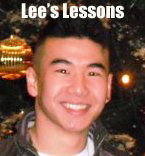Updated Feb 15, 2010 at 1:29 p.m. JAN - FEB 2010 Edition


| Home| Expressions
|Impressions
|Hotpressions |News|
Greek Life |Education
|Entertainment
|Multimedia |Sports |
Food
|CulturalLife
|Features|
Archives
|Top 5 IMPRESSIONS 
Custom Search
|
|
“Selling
Out Soul Of Rap
Openly Risks Hip-Hops Reality Hereby”
Pete
Lee
Hip-Hop was once a vivid movement in which
one could express collective consciousness with original
individuality. In recent years, the Hip-Hop music of rap has become
a dead-end movement infatuated with money, guns, and sex. By
spraying these themes repeatedly across radio waves, rap has earned
itself a negative image. Those who criticize rap cite its violent,
misogynistic messages, but that is because they have only heard what
TRL and 106 & Park dictate and show to them. Rhymes constantly boasting about material objects and luxury are favored instead of those dealing with suffering and hardship. Although not all pain comes from poverty, the lyrical ability, complex wordplay, gritty story-telling, clever phrasing, and thought-provoking composure no longer win a rapper's respect or attention. Nothing makes sense anymore, for the introspective and socially aware soul within the music has disappeared. Because Hip-Hop depends on creativity to leave an impression on the world through verbal expression, this lack of uniqueness is causing a casualty by hurting the industry. Hip-Hop was once an exciting Ferris wheel revolving with art, commerce, politics, and spirituality.
Yet this evolution has fallen victim to
rampant commercialization, controlled completely by record companies
so that average listeners have no say, The few real artists who
still spread the classic feel and taste of Hip-Hop genuine do not
get the widespread recognition that they deserve simply because they
refuse to "sell-out." Pete Lee is a member of Asian Student Alliance, Korean Cultural Association, Korean Student Association, and Pitt Asian-InterVarsity |
Lee's Lessons: “Honestly Human Nature Can Constantly Promote Peace! ” (Nov 24, 2009) By Pete Lee "Helping Hands Needed Now For Fighting People’s Poverty!" (Jan 21, 10, 2:14 p.m.) By Pete Lee Hip - Hop Related: Video: “Hip-Hop Dances Display Diversity's Delight!” (Feb 15, 10, 1:27 p.m.) By KCA, Impulse, Soul Stylz, and CSSA
|
Copyright 2010 Pittsburgh Standard
Reproduction or reuse for profit prohibited without written consent from
Pittsburgh Standard

 As
the legendary Hip-Hop pioneer KRS-One once declared, "Rap is
something you do, but Hip-Hop is something which you live." Hip-Hop
is more than just the music; it is a culture consisting of four main
elements: Graffiti, B-Boying (Break-dancing), DJing (Turntablism),
and Emceeing (Lyricism). This lifestyle has spread around the world
in recent years and has made a drastic impact upon people and
society, setting trends and spurring debate. Because changing tastes
will always affect the direction of the game, people expect that
Hip-Hop will go through different states and its sound will continue
to evolve.
As
the legendary Hip-Hop pioneer KRS-One once declared, "Rap is
something you do, but Hip-Hop is something which you live." Hip-Hop
is more than just the music; it is a culture consisting of four main
elements: Graffiti, B-Boying (Break-dancing), DJing (Turntablism),
and Emceeing (Lyricism). This lifestyle has spread around the world
in recent years and has made a drastic impact upon people and
society, setting trends and spurring debate. Because changing tastes
will always affect the direction of the game, people expect that
Hip-Hop will go through different states and its sound will continue
to evolve.